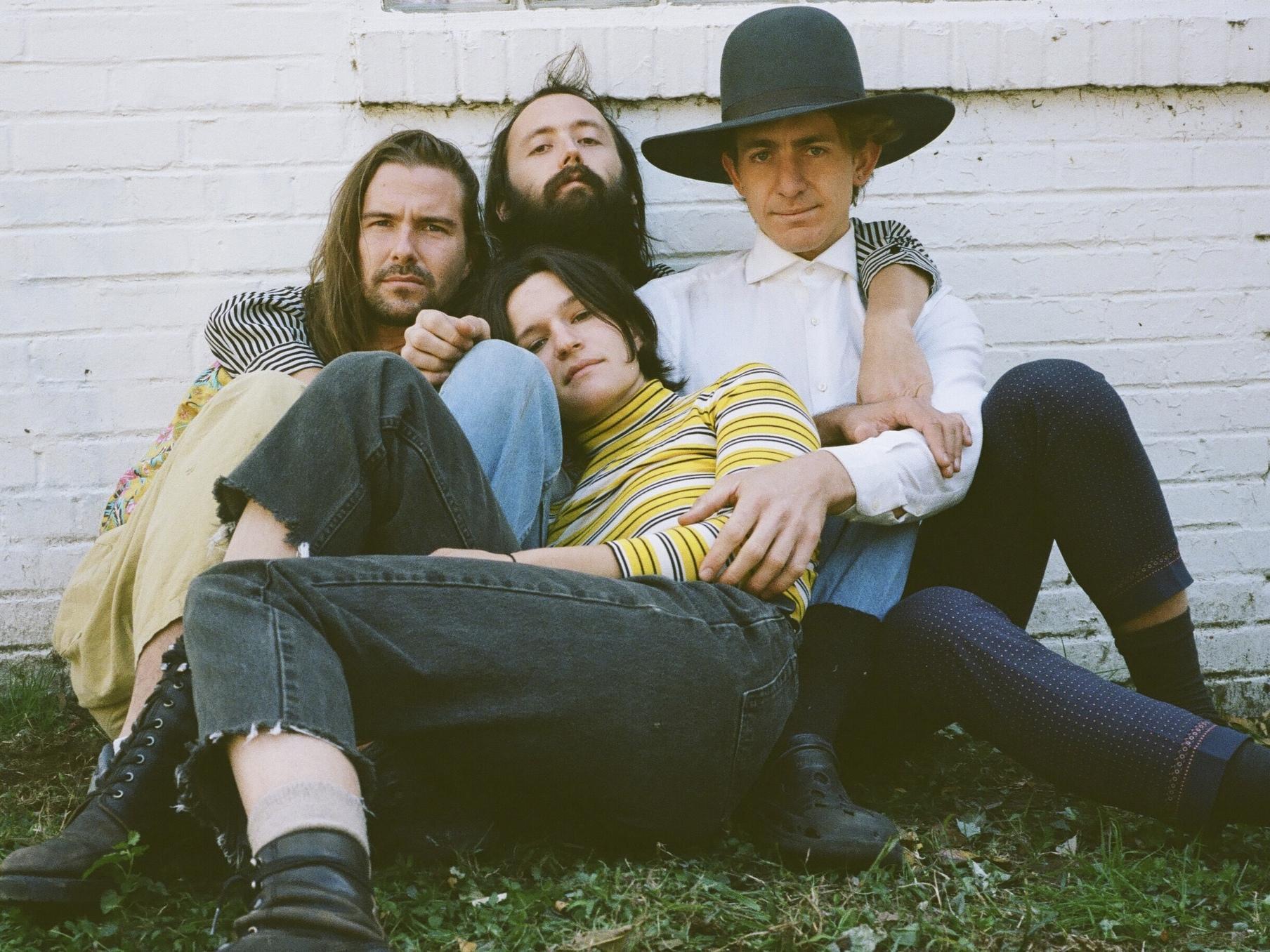Big Thief’s Adrianne Lenker: ‘We’re all brainwashed’
As the US indie band release their third album, ‘UFOF’, their ethereal frontwoman talks to Alexandra Pollard about letting go, healing trauma and her open-hearted music


Your support helps us to tell the story
From reproductive rights to climate change to Big Tech, The Independent is on the ground when the story is developing. Whether it's investigating the financials of Elon Musk's pro-Trump PAC or producing our latest documentary, 'The A Word', which shines a light on the American women fighting for reproductive rights, we know how important it is to parse out the facts from the messaging.
At such a critical moment in US history, we need reporters on the ground. Your donation allows us to keep sending journalists to speak to both sides of the story.
The Independent is trusted by Americans across the entire political spectrum. And unlike many other quality news outlets, we choose not to lock Americans out of our reporting and analysis with paywalls. We believe quality journalism should be available to everyone, paid for by those who can afford it.
Your support makes all the difference.Speaking to Big Thief’s lead singer Adrianne Lenker is intense. Where most interviewees take some time to crack open, the 27-year-old goes disorientingly deep almost instantly. “I’ve been thinking lately how I have these certain wounds inside of myself,” she says, while sitting motionless on a rocking chair in a London hotel room, “and if I don’t heal them, they will control me. The only thing that will work to change and transform this energy is if I show it love, not just more rejection, more abandonment.” She cups her hands, as if she’s holding an invisible orb. “OK, I see that you’re there, and I see that you’re a part of me – and you know what, I accept that you’re there and I love you.”
Introspective and softly spoken, Lenker seems to see the wonder in everything: love, death, birth, trauma, wounds, a sunset, “the way that a raspberry can pop out of the earth”. It’s a trait in keeping with her band’s music – heady folk-rock that is unflinchingly sincere. Sometimes, Lenker’s lyrics are elaborate – “When you looked at me, your eyes were like machinery/ Your hands were making artefacts in the corner of my mind,” she sings on “Mary”, a stand-out track from the band’s brilliant 2017 album Capacity. At other times, like on that same album’s “Shark Smile”, they are playfully blunt: “And she said woo, baby, take me / And I said woo, baby, take me too.”
It’s earned the Brooklyn-based indie band – who also comprise guitarist Buck Meek, bassist Max Oleartchik and drummer James Krivchenia – a quietly devoted fan base, who’ve been enthralled by their open-hearted music since the release of their 2016 debut album Masterpiece. On Friday, they release their third record, UFOF (the second f stands for “friend”), a poised but capricious collection of shoegazey folk, recorded in a cabin in rural western Washington.
But Lenker nearly went down a very different path. Born into a religious cult in Indianapolis, she spent her early years living out of a van with her young parents. When she was just 13, she recorded her first album – with her father acting as her manager – and was, she told Pitchfork, “on the train towards becoming a child pop star”. She seems glad that train was derailed.
“My parents had me when they were 21, and they were going through their own journey of figuring out who they were...” She stares into the middle distance for a moment. “The cult, my perspective on it is growing all the time. As a kid, I just saw it as a cult and that’s what I called it, and that’s what my parents called it for a while too. Now I’m like, ‘OK, they were in this community of religious people, and perhaps it was a bit brainwashing, but we’re all brainwashed and using Apple products. That’s kind of a cult. What is a cult? What’s the difference between a church and a cult? What defines it? I don’t know.”
Considering the impact it seems to have had on her, she views her upbringing through a remarkably sympathetic lens. “Yeah, there were a lot of trials and difficulties that we went through as a family,” she says. “My parents divorced when I was 12, and leading up to that it was… not without turbulence.” There’s a pause. “It’s hard for me to speak about specific things. But the older I get, the more I see that the turbulence that I was experiencing was because they were processing their turbulence. I’m 27 now. If I had three kids, damn, they would have definitely experienced some turbulence.”
Lenker believes her trauma was passed down not just from her parents but from older ancestors too. “I feel like there’s such ancient pain in us as humans,” she says. “For instance, we come from this patriarchal lineage where women have been oppressed, and we’re feeling, I think, collective pain from these energies being so out of balance. Like, it’s old pain. I’m sure I’m still feeling things that have been passed down from my great-great-grandmother. And with each generation, it seems that there’s a little bit more work done to open that part back up. It feels like an old, old piece of pain that I’m needing to face and transmute.”
She is good at facing things others would rather turn away from. UFOF is about “making friends with the unknown”. On the album’s title track, which has the eerie breathiness of Charlotte Gainsbourg, she imagines herself being visited by an alien: “I imagine you / Taking me outta here.” In the end, though, it leaves her behind. “Just like a bad dream you’ll disappear.”

This sense of loss – or ill-defined absence – continues throughout. “No one can be my man, be my man, be my man…” she insists on “From”, repeating herself over fingerpicked guitars and rolling drums until the words become almost meaningless, “No one can be my woman, be my woman…” On “Orange”, a gently strummed ballad on which her voice quivers with vulnerability, she sings: “Fragile is that I mourn her death/ As our limbs are twisting in her bedroom.” Lenker seems to pre-empt loss, even in moments of ecstasy. She doesn’t see that as a bad thing.
“Everything is fleeting and passing and impermanent in life,” she says. “Relationships, people, our finite physical forms… We let go of our childhoods, we let go of different parts of our body, we lose elasticity in our skin, and we lose hair and we lose teeth. So we’re in this process of letting go of our own attachments to our physical forms and to the people we love, and… basically everything. Life is like this one big process of letting go. That’s what makes it so sweet, is that it is finite, that it is passing, so you can just really come into the present.”
She takes a deep lungful of air as if she’s just emerged from underwater. “Wow, the sweetness of this one moment being alive. It’s actually incredible. Everything is kind of magic.”
UFOF is out on 3 May
Join our commenting forum
Join thought-provoking conversations, follow other Independent readers and see their replies
Comments